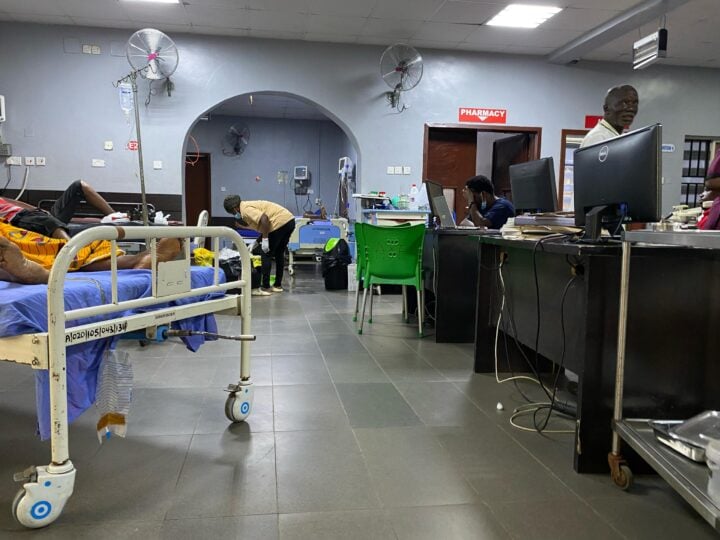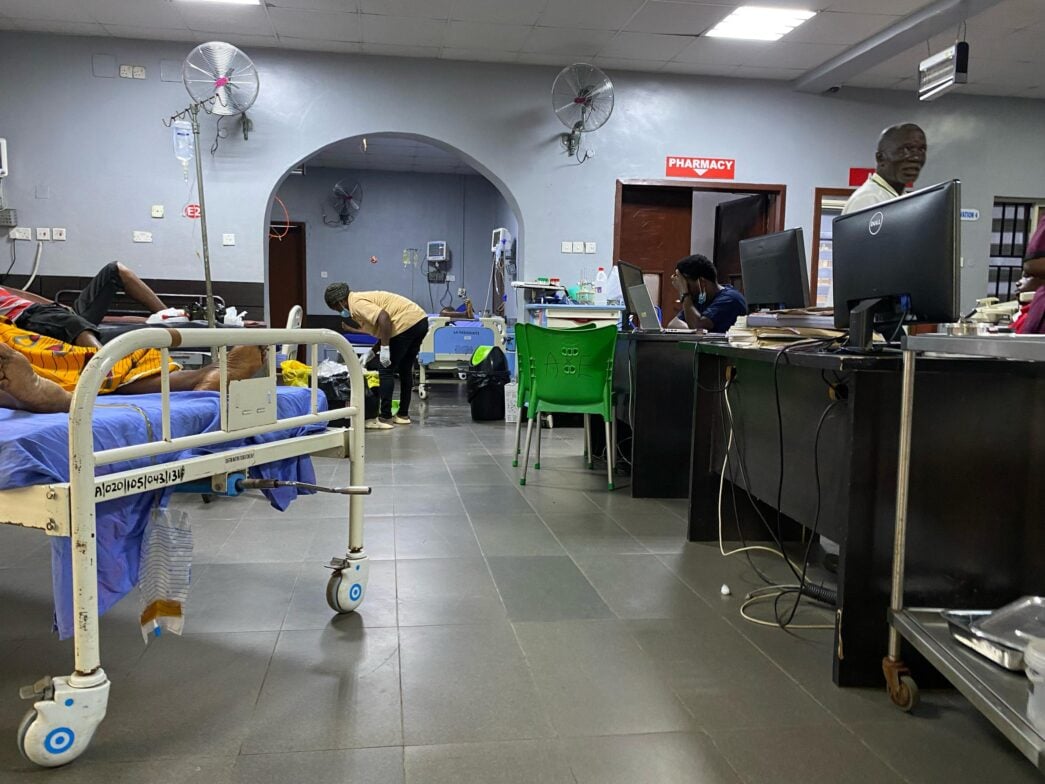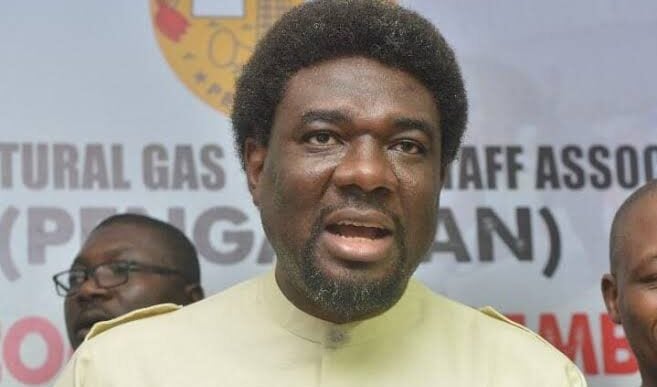A ward in Ikorodu General Hospital | File photo
In December 2017, then President Muhammadu Buhari signed an important legislation for the compulsory medical treatment of victims of gunshot injuries without police report or clearance.
The legislation titled: ‘Compulsory Treatment and Care for Victims of Gunshots Act, 2017’, was initiated to prevent the deaths of gunshot victims.
Before the legislation, hospitals demanded police reports as a requirement for treating affected persons.
The idea of the police report requirement stemmed from the misinterpretation of the Robbery and Firearms (Special Provisions) Act 1990 — a law enacted due to the rising cases of armed robbery in the country.
Advertisement
The 1990 law did not explicitly stipulate the police report requirement. The law only asked that the hospital should immediately report persons with gunshot wounds to law enforcement.
The requirement deterred many hospitals from treating or admitting persons with gunshot wounds — leading to the passing of many.
In May 2018, Adebayo Akinwunmi, an engineer, was shot by armed robbers at his residence in Orimerunmu, Obafemi Owode LGA of Ogun state.
Advertisement
Akinwunmi’s family alleged that the engineer died because the hospital rejected him due to lack of a police report.
In June 2021, Ebenezer Ayeni, a music producer, died of gunshot wounds after some hospitals reportedly refused to treat him over failure to produce a police report.
The 30-year-old was shot by armed robbers who invaded his residence in Ibadan, the Oyo state capital.
Medical practitioners had argued that they demand police report for gunshot wounds to avoid the constant harassment and victimisation from police officers, and in some cases, detention.
Advertisement
Refusal to treat a victim of gunshot wounds violates the Hippocratic Oath taken by medical doctors.
LEGISLATION
In a bid to protect victims of gunshot wounds and other health emergencies, laws were enacted to provide a framework.
In December 2014, then President Goodluck Jonathan signed the National Health Act, which criminalises the rejection of patients with health emergencies.
Advertisement
Section 20 (1)of the Act states: “A health care provider, health worker or health establishment shall not refuse a person emergency medical treatment for any reason.
“(2) A person who contravenes this section commits an offence and is liable on conviction to a fine of N100,000.00 or to imprisonment for a period not exceeding six months or to both.”
Advertisement
Compliance to the provisions of the Act was very low as it was not explicit.
In December 2017, Buhari signed the Compulsory Treatment and Care for Victims of Gunshots Act.
Advertisement
WHAT THE LAW SAYS
The conversation on the compulsory treatment legislation made a return to Nigeria’s social media space after Somtochukwu Christelle Maduagwu, a news anchor and producer with Arise Television, and a security guard, died during an armed robbery incident in Abuja.
Advertisement
It was alleged that a hospital demanded identification cards before treating the victims.
The 2017 legislation provides that anyone with gunshot wounds is entitled to admission in a hospital — whether public or private.
The Act stipulates that security operatives shall promptly assist a victim of gunshot wounds to the nearest hospital.
Under the legislation, hospitals are expected to report persons with gunshot wounds to the police within two hours of commencement of medical treatment.
Section 1 of the Act states: “As from the commencement of this Act, every hospital in Nigeria whether public or private shall accept or receive, for immediate and adequate treatment with or without police clearance, any person with a gunshot wound.
“2. (1) Every person, including security agents, shall render every possible assistance to any person with gunshot wounds and ensure that the person is taken to the nearest hospital for immediate treatment.
” (2) Accordingly – (a) a person with a gunshot wound shall be received for immediate and adequate treatment by any hospital in Nigeria with or without initial monetary deposit, and
“(b) a person with a gunshot wound shall not be subjected to inhuman and degrading treatment or torture by any person or authority including the police or other security agencies.
“3. (1) A hospital that receives or accepts any person with a gunshot wound for treatment shall report the fact to the nearest police station within two hours of commencement of treatment.
“(2) Upon receipt of the report under subsection (1) of this section, the police shall immediately commence investigation with a view to determining the circumstances under which the person was shot.
“4. The police shall not invite any person with gunshot wounds from the hospital for the purposes of investigation unless the Chief Medical Director of the hospital certifies him fit and no longer in dire need of medicare.”
Section 11 of the legislation also stipulates that: “Any Person or authority including any police officer, other security agent or hospital who stands by and fails to perform his duty under this Act which results in the unnecessary death of any person with gunshot wounds commits an offence and is liable on conviction to a fine of N500,000.00 or imprisonment for a term of five years or both”.
Despite the enactment of this legislation, compliance remains low.
In October 2023, Kayode Egbetokun, inspector-general of police, warned health workers against rejecting victims of gunshot wounds with or without police report.
In February 2024, Ali Pate, minister of health, urged medical practitioners to comply with the legislation.













